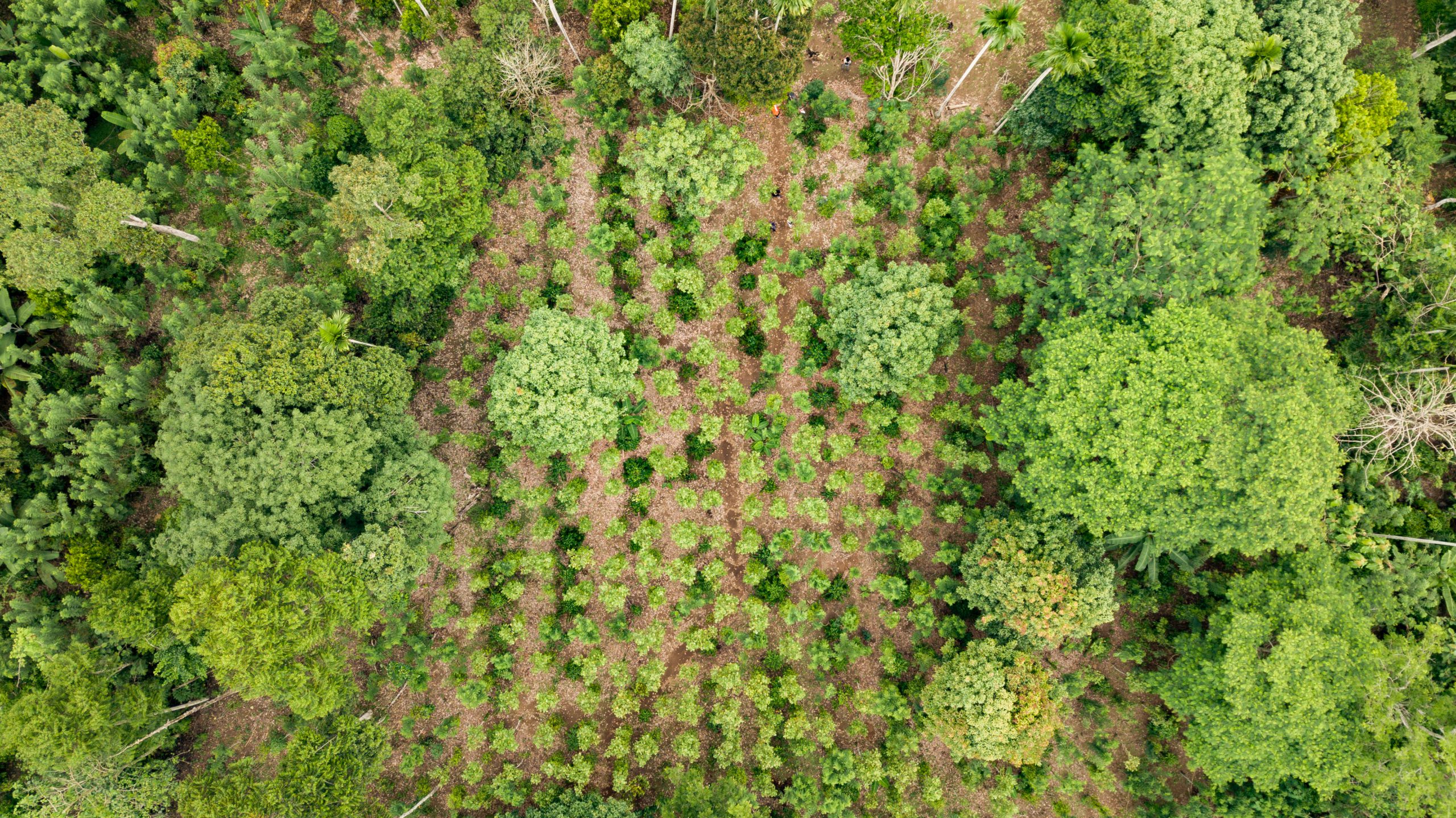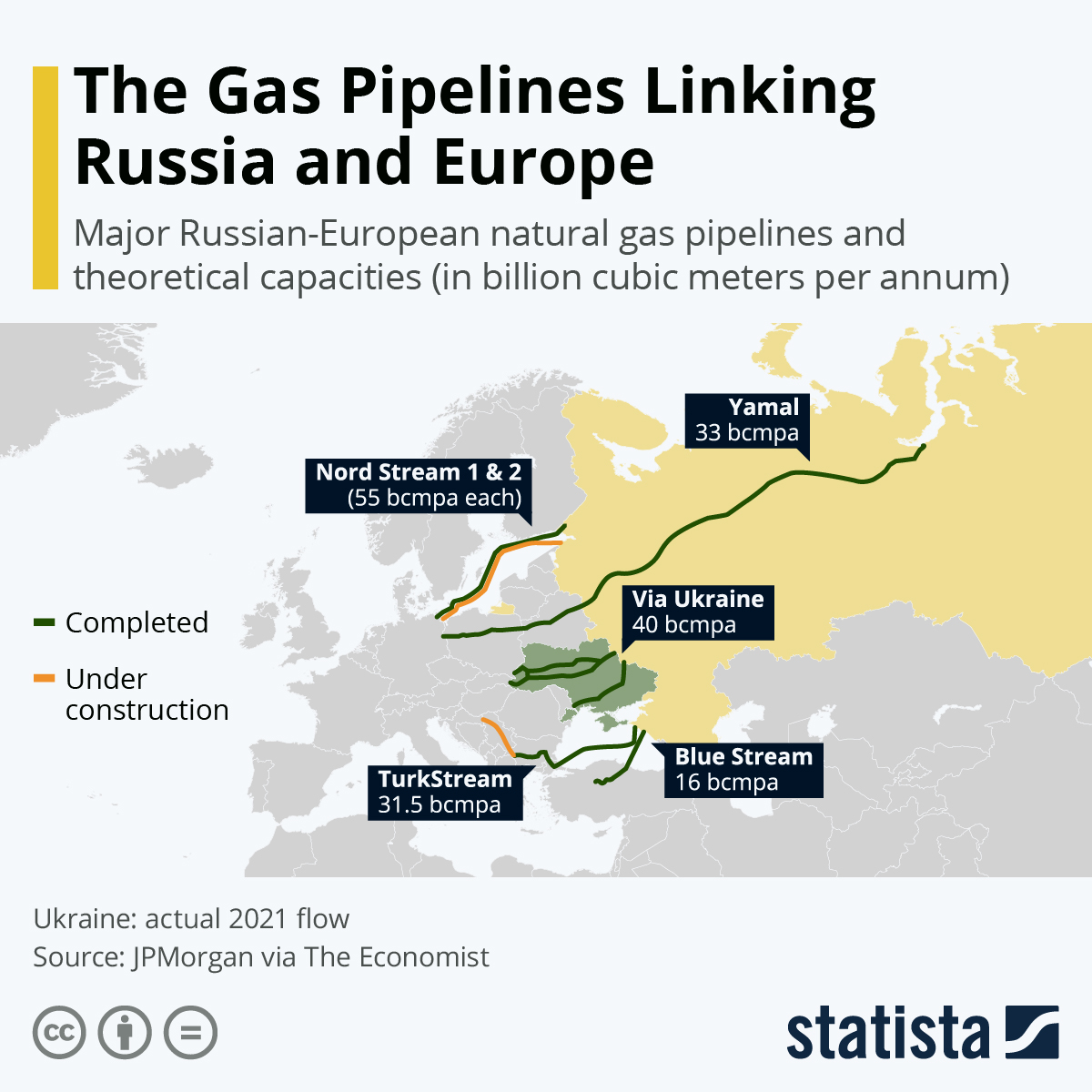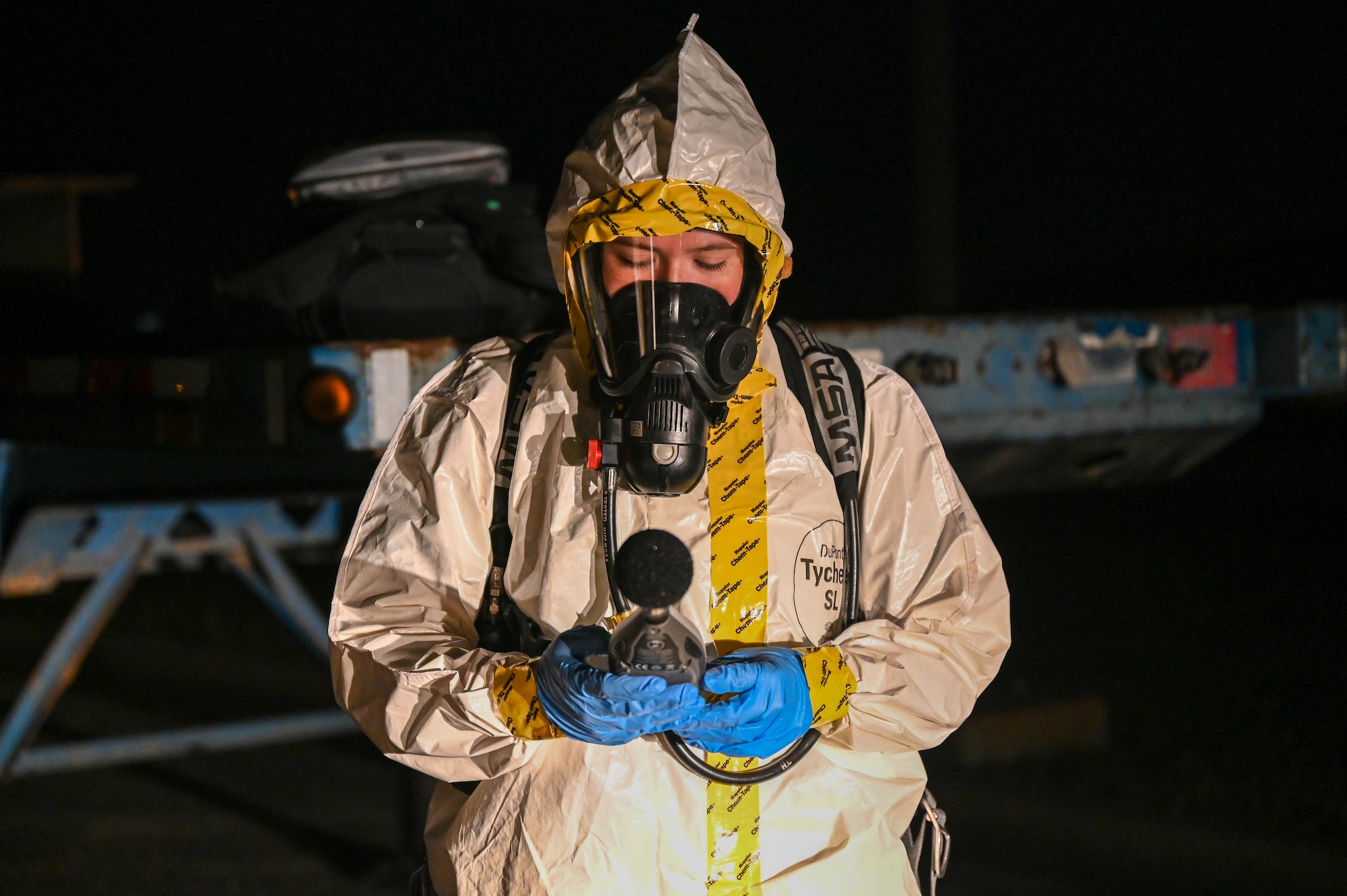World Updates | Update information about politics and social around the world
Ukraine's Pivotal Role In European Gas Transit: An Exploration Of Infrastructure, Challenges, And Opportunities
Ukraine's Pivotal Role In European Gas Transit: An Exploration Of Infrastructure, Challenges, And Opportunities, explores the significance of Ukraine's role as a central transit route for European gas supplies.
Beyond The Hazard Zone: Bioenvironmental's Pivotal Role in Space Launch - Source www.patrick.spaceforce.mil
Editor's Notes: "Ukraine's Pivotal Role In European Gas Transit: An Exploration Of Infrastructure, Challenges, And Opportunities" have published today date.
The importance of understanding Ukraine's role in European gas transit cannot be overstated, as it underscores Ukraine's strategic importance as a transit country for Russian gas supplies to Europe. Furthermore, it highlights the challenges Ukraine faces in maintaining its role. In light of this, we have conducted extensive research and analysis to compile this comprehensive guide.
Key Differences
Main Article Topics
FAQ
This FAQ section delves into specific questions and answers regarding Ukraine's pivotal role in European gas transit. Covering infrastructure, challenges, and opportunities, this section aims to provide insights into Ukraine's significance within the European energy landscape.

The Doughnut | Echoes of the Wild: Dartmoor Zoo’s Pivotal Role in the - Source sites.marjon.ac.uk
Question 1: How does Ukraine's gas transit infrastructure compare to other European countries?
Ukraine boasts an extensive gas transit network, accounting for approximately 35% of Russia's gas exports to Europe. Its strategic location and pipeline capacity make it a crucial hub for gas distribution to countries such as Germany, Hungary, and Slovakia.
Question 2: What are the primary challenges associated with Ukraine's gas transit system?
One significant challenge is the ongoing conflict in eastern Ukraine, which has disrupted gas transit operations and raised concerns about the reliability of supplies. Additionally, ageing infrastructure and geopolitical tensions between Ukraine and Russia have also posed challenges to the smooth flow of gas.
Question 3: Despite these challenges, what opportunities does Ukraine's gas transit role present?
Ukraine's position as a major gas transit country provides opportunities for economic development, job creation, and fostering closer energy ties with European partners. By investing in infrastructure modernization and promoting transparent and stable regulatory frameworks, Ukraine can enhance its competitiveness and ensure a secure energy future.
Question 4: What are the long-term implications of Ukraine's gas transit role for Europe's energy security?
Ukraine's continued role as a gas transit country is crucial for diversifying Europe's energy supply and reducing dependence on a single supplier. By providing an alternative route for gas imports, Ukraine contributes to enhancing Europe's energy resilience and reducing geopolitical risks.
Question 5: How can Ukraine balance its economic interests from gas transit with its geopolitical responsibilities?
Ukraine faces the challenge of balancing economic benefits from gas transit with ensuring the reliability and security of supplies. Transparent and predictable regulations, as well as international cooperation, are essential for striking a balance that meets both economic and geopolitical objectives.
Question 6: What are the potential implications of reduced gas transit through Ukraine for the country and Europe?
A significant reduction or cessation of gas transit through Ukraine would have substantial economic consequences for the country. Moreover, it could lead to increased energy prices and supply disruptions in Europe. Therefore, maintaining a stable and cooperative relationship between Ukraine and its transit partners is vital for ensuring the reliability of gas supplies.
In summary, Ukraine's pivotal role in European gas transit presents both challenges and opportunities. By addressing infrastructure concerns, mitigating geopolitical risks, and fostering transparent partnerships, Ukraine can harness its strategic position to contribute to Europe's energy security and its own economic development.
Proceeding to the next article section: Ukraine's Energy Landscape: A Comprehensive Analysis
Tips
This article, Ukraine's Pivotal Role In European Gas Transit: An Exploration Of Infrastructure, Challenges, And Opportunities presents valuable insights into Ukraine's significance in European gas transit. To enhance your understanding of the topic, consider the following tips:
Ukraine, Turkey emerging as eastern European gas transit options | ICIS - Source www.icis.com
Tip 1: Understand Ukraine's Strategic Position: Recognize Ukraine's geographical significance as a transit hub for Russian gas destined for Europe. This advantageous location makes Ukraine a crucial player in the energy security of the region.
Tip 2: Evaluate Infrastructure Capacities: Assess the existing gas transit pipelines and their capacities. Identify potential bottlenecks and explore opportunities for expansion and modernization to meet the growing demand for gas in Europe.
Tip 3: Address Political and Regulatory Challenges: Acknowledge the political and regulatory complexities surrounding gas transit through Ukraine. Consider the impact of geopolitical tensions on gas supplies and examine the legal and regulatory frameworks governing gas transit.
Tip 4: Explore Diversification Strategies: Encourage the exploration of alternative sources of gas supply to reduce dependence on Russian gas. Examine the potential for gas imports from other countries and the development of domestic gas production in Ukraine.
Tip 5: Promote Regional Cooperation: Foster cooperation among European countries to address the challenges and opportunities in gas transit. Encourage joint investments, technological collaborations, and policy harmonization to ensure the stability and sustainability of the gas supply chain.
Summary: By implementing these tips, you can gain a comprehensive understanding of Ukraine's pivotal role in European gas transit. It is essential to consider the infrastructure, challenges, and opportunities to ensure the secure and reliable supply of gas to Europe.
Ukraine's Pivotal Role In European Gas Transit: An Exploration Of Infrastructure, Challenges, And Opportunities
Ukraine, strategically positioned at the crossroads of Europe, plays a pivotal role in the transit of natural gas from Russia to several European countries. This role is underpinned by a comprehensive gas transit infrastructure, a complex geopolitical landscape, and evolving market dynamics. Exploring these key aspects provides valuable insights into the challenges and opportunities that shape Ukraine's position in European gas transit.
- Transit Infrastructure: Ukraine boasts a vast network of pipelines and gas storage facilities, facilitating the transportation of significant gas volumes across its territory.
- Geopolitical Landscape: Ukraine's geopolitical position has influenced its role as a transit country, with political tensions and conflicts impacting gas transit arrangements.
- Diversification: Ukraine actively explores diversification of gas supply sources to enhance energy security and reduce dependence on Russian gas.
- Energy Efficiency: Ukraine faces challenges in improving energy efficiency, which can reduce its own gas consumption and increase the availability for transit.
- Market Dynamics: Regional gas markets are evolving, with the advent of liquefied natural gas (LNG) and alternative energy sources influencing transit demand.
- Investment and Development: Ukraine seeks investments to modernize its transit infrastructure, enhance energy efficiency, and capitalize on the opportunities presented by gas transit.
Ukraine's role in European gas transit is influenced by a complex interplay of infrastructure, geopolitical factors, market dynamics, and energy policies. Understanding these key aspects is essential for assessing the challenges and opportunities faced by Ukraine in maintaining its pivotal position in European energy security. By addressing these aspects through strategic planning, Ukraine can optimize its gas transit operations, mitigate risks, and leverage its position for economic growth and regional cooperation.

Agroforestry's pivotal role in improving the farming system and - Source fairfood.org

Public Private Partnership (PPP) for Transport & Logistics - Source www.slideshare.net
Ukraine's Pivotal Role In European Gas Transit: An Exploration Of Infrastructure, Challenges, And Opportunities
Ukraine plays a pivotal role in European gas transit by serving as a major transit country for Russian gas to Europe. The country's vast network of pipelines, storage facilities, and compressor stations allows it to transport large volumes of gas to European countries such as Germany, Poland, and Hungary. Ukraine's role in European gas transit is critical for ensuring the security of supply to these countries, and its significance has grown in recent years amid the ongoing conflict between Russia and Ukraine.

The Russian Gas Pipeline Network: A Vital Infrastructure For Europe And - Source mapidahocitiesandtowns.pages.dev
The infrastructure for gas transit in Ukraine consists of a network of pipelines that run from Russia through Ukraine to Europe. The main pipelines are the Urengoy-Pomary-Uzhgorod pipeline, which runs from Russia to Slovakia, and the Yamal-Europe pipeline, which runs from Russia to Poland. Ukraine also has several underground gas storage facilities that allow it to store gas during periods of low demand and release it during periods of high demand. These facilities are essential for ensuring the reliability of gas supplies to Europe.
However, Ukraine's role in European gas transit faces several challenges. One of the biggest challenges is the ongoing conflict between Russia and Ukraine. The conflict has led to disruptions in gas supplies to Europe, and it has also raised concerns about the security of the gas transit infrastructure in Ukraine. Another challenge is the declining demand for gas in Europe. The demand for gas in Europe has been declining in recent years due to the growth of renewable energy sources. This decline in demand has put pressure on Ukraine's gas transit revenues.
Despite these challenges, Ukraine remains a pivotal role in European gas transit. The country's vast network of pipelines and storage facilities makes it an essential transit country for Russian gas to Europe. Ukraine's role in European gas transit is likely to continue in the coming years, even as the demand for gas in Europe declines.
| Country | Gas Consumption (bcm) | Share of Russian Gas (%) |
|---|---|---|
| Germany | 90.0 | 50.0 |
| Poland | 17.0 | 60.0 |
| Hungary | 10.0 | 80.0 |
| Slovakia | 5.0 | 100.0 |
Conclusion
Ukraine's role in European gas transit is critical for ensuring the security of supply to many European countries. The country's vast network of pipelines, storage facilities, and compressor stations allows it to transport large volumes of gas to Europe. However, Ukraine's role in European gas transit faces several challenges, including the ongoing conflict between Russia and Ukraine and the declining demand for gas in Europe. Despite these challenges, Ukraine is likely to continue to play a pivotal role in European gas transit in the coming years.
The conflict between Russia and Ukraine has had a significant impact on Ukraine's role in European gas transit. The conflict has led to disruptions in gas supplies to Europe, and it has also raised concerns about the security of the gas transit infrastructure in Ukraine. In response to the conflict, the European Union has taken steps to reduce its dependence on Russian gas. The EU has also increased its support for Ukraine's gas transit infrastructure.
The declining demand for gas in Europe is another challenge to Ukraine's role in European gas transit. The demand for gas in Europe has been declining in recent years due to the growth of renewable energy sources. This decline in demand has put pressure on Ukraine's gas transit revenues.
Despite these challenges, Ukraine remains a pivotal role in European gas transit. The country's vast network of pipelines and storage facilities makes it an essential transit country for Russian gas to Europe. Ukraine's role in European gas transit is likely to continue in the coming years, even as the demand for gas in Europe declines.
